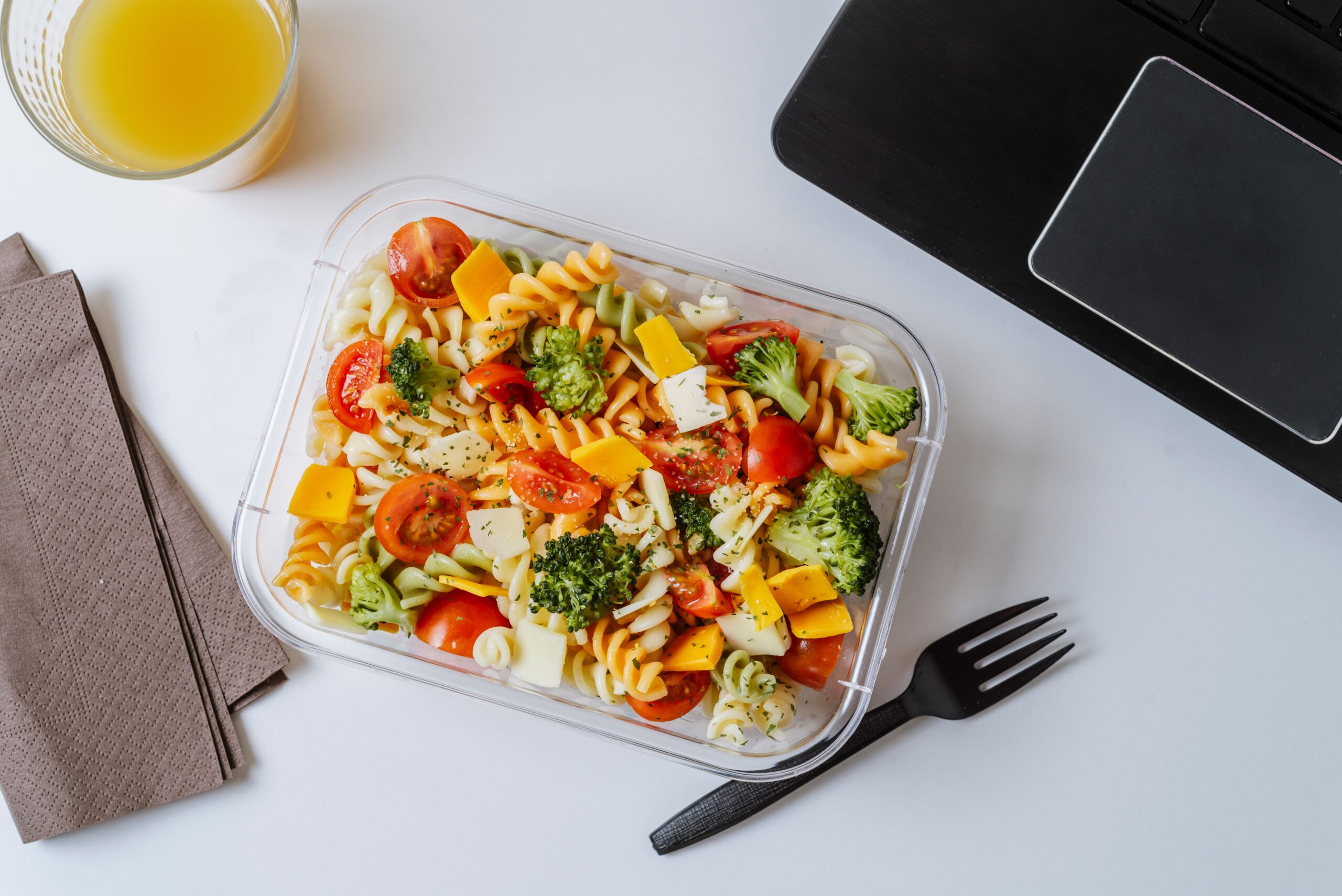Intuitive eating: Getting started
Intuitive eating is a relatively new term that you may have heard floating around on the internet, or maybe someone you know mentioned it in a conversation and you weren’t quite sure what it meant.
Here at Embody Health London, we describe intuitive eating as an evidence-based self-care eating framework that combines our emotions, our thoughts and instinct. It involves rejecting the harmful mindset of dieting and restriction and instead tuning in to your body’s own signals to nurture balanced eating patterns.
This lifestyle encourages you to grow and become connected with your emotional and biological needs on a much deeper level.
New research supporting intuitive eating is emerging constantly, with many studies showing that intuitive eating has a positive impact on people’s relationship with food, improving body satisfaction and decreasing eating disorder symptomology1.
The ten principles of intuitive eating
- One: Getting out of the diet mentality
Let’s be honest: diet culture is harmful and can have negative effects on both our mental and physical health! Crash dieting has been known to increase the risk of overeating, binge eating and even disordered eating2.
That’s why intuitive eating encourages you to ditch dieting and rediscover the joys of eating, creating positive associations with food rather than negative ones.
- Two: Honouring your hunger
Hunger is our body’s way of telling us what we need. These hunger cues shouldn’t be suppressed or ignored, because ultimately this is what leads to becoming trapped in the cycle of restricting and overeating.
Listen to what your body is telling you: food is fuel!
- Three: Making peace with food
Food is NOT the enemy! When we think about foods as being “good” or “bad”, we promote fear and stress around eating. Food should be something that brings us happiness and joy, not something that holds us back.
- Four: Challenging food “rules”
Intuitive eating means pushing aside the unhelpful, often inaccurate, messages that diet culture tries to feed us. The sooner you learn to deconstruct these concepts, the happier you will be in your relationship with eating.
- Five: Appreciating when you’re full
Just like when we’re hungry, our bodies will tell us when we’re full! A positive relationship with food and our body includes tuning in with your feelings of fullness and satiety; learning to recognise your natural bodily cues and responding appropriately.
- Six: Exploring the satisfaction in eating
Eating should not only satisfy your taste buds, but it should satisfy your appetite as well! We need to make sure that not only are we enjoying our food, but that it fills us up and nourishes us too.
If you’re still feeling hungry after finishing a meal, think to yourself – what could I add to make this more satisfying and fulfilling?
- Seven: Honouring your own emotions
Your emotions are valid and need to be acknowledged to build a healthy relationship with food. After all, eating is an emotional process and can stem from a place of unmet emotional needs.
Eating as a way of coping with your emotions most of the time is probably not going to make you feel any better in the long run – it’s important to find healthier ways of dealing with these emotions so that you can feel better in yourself and diversify your toolbox.
- Eight: Respecting your body
Our bodies are truly amazing, and they deserve to be respected. After all, they do a lot for us! How can we expect to have a good relationship with food if we don’t have a good relationship with our bodies first?
If loving your body feels too far away now, intuitive eating will help you to accept your body as it is and appreciate everything it does for you.
- Nine: Exercising because you enjoy it
We all know physical activity is good for us, but NOT when it becomes a regimen you feel trapped in and no longer enjoy.
Exercise should be something that brings you pleasure, not something you feel compelled to do to burn calories, or because that’s what diet culture has told you. Movement should be joyful, not punishing.
- Ten: Incorporating gentle nutrition
Eating should of course be an enjoyable experience, but it should also nourish you and provide you with all the nutrition you need.
Once you have fully understood and appreciated all these key principles, then you can work on incorporating intuitive eating into your life with the right skills and knowledge to feed your body and your brain. Gentle nutrition is a dynamic integration between your internal body wisdom and external health guidelines.
Will intuitive eating help me lose weight?
When you begin your intuitive eating journey, it’s important to be in the right mindset and to do it for the right reasons – not because that’s what diet culture says you should be doing to lose weight.
During the process of intuitive eating, our bodies will often return to their natural set points and stop fluctuating above or below: recent research supports this idea and shows that intuitive eating has been associated with weight stability3.
Intuitive eating will help you nurture a positive relationship with food, improve your body image, enable you to make more informed food choices, and empower you as a person – you may not lose weight if this is where your body wants to happily sit, but you will gain so much more!
Here at Embody Health London, we can support you on your intuitive eating journey. Get in touch with us now at [email protected] to find out more!
Robin Wileman, EHL Dietitian Student Intern
References
1 Stewart, T., Martin, C. and Williamson, D., 2022. The Complicated Relationship between Dieting, Dietary Restraint, Caloric Restriction, and Eating Disorders: Is a Shift in Public Health Messaging Warranted?. International Journal of Environmental Research and Public Health, [online] 19(1), p.491. Available at: https://www.mdpi.com/1660-4601/19/1/491/htm
2 Tylka, T., Calogero, R. and Daníelsdóttir, S., 2019. Intuitive eating is connected to self-reported weight stability in community women and men. Eating Disorders, [online] 28(3), pp.256-264. Available at: https://www.tandfonline.com/doi/full/10.1080/10640266.2019.1580126?casa_token=7sKlFqZGIUIAAAAA%3ADC9GVtPp3R2itQ_94bTORKBW6SLn2FOh-0ci265DXBohFLP5zO9ovhxshExN62m-PITKhssEJDNk
3 Warren, J., Smith, N. and Ashwell, M., 2017. A structured literature review on the role of mindfulness, mindful eating and intuitive eating in changing eating behaviours: effectiveness and associated potential mechanisms. Nutrition Research Reviews, [online] 30(2), pp.272-283. Available at: https://www.cambridge.org/core/journals/nutrition-research-reviews/article/structured-literature-review-on-the-role-of-mindfulness-mindful-eating-and-intuitive-eating-in-changing-eating-behaviours-effectiveness-and-associated-potential-mechanisms/351A3D01E43F49CC9794756BC950EFFC



